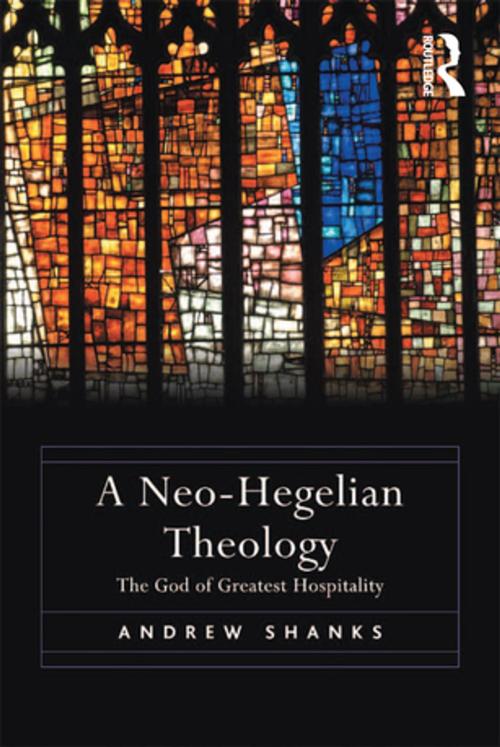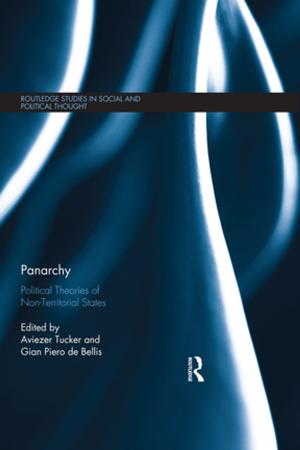A Neo-Hegelian Theology
The God of Greatest Hospitality
Nonfiction, Religion & Spirituality, Philosophy, Religious, Theology| Author: | Andrew Shanks | ISBN: | 9781317187448 |
| Publisher: | Taylor and Francis | Publication: | March 3, 2016 |
| Imprint: | Routledge | Language: | English |
| Author: | Andrew Shanks |
| ISBN: | 9781317187448 |
| Publisher: | Taylor and Francis |
| Publication: | March 3, 2016 |
| Imprint: | Routledge |
| Language: | English |
The thought of G.W.F. Hegel (1770-1831) haunts the world of theology. Constantly misunderstood, and often maliciously misrepresented, Hegel nevertheless will not go away. Perhaps no other thinker in Christian tradition has more radically sought to think through the requirements of perfect open-mindedness, identified as the very essence of the truly sacred. This book is not simply an interpretation of Hegel. Rather, it belongs to an attempt, so far as possible, to re-do for today something comparable to what Hegel did for his day. Divine revelation is on-going: never before has any generation been as well positioned as we are now, potentially to comprehend the deepest truth of the gospel. So Hegel argued, of his own day. And so this book also argues, of today. It is an attempt to indicate, in Trinitarian form, the most fundamentally significant ways in which that is the case. Thus, it opens towards a systematic understanding of the history of Christian truth, essentially as an ever-expanding medium for the authentic divine spirit of openness.
The thought of G.W.F. Hegel (1770-1831) haunts the world of theology. Constantly misunderstood, and often maliciously misrepresented, Hegel nevertheless will not go away. Perhaps no other thinker in Christian tradition has more radically sought to think through the requirements of perfect open-mindedness, identified as the very essence of the truly sacred. This book is not simply an interpretation of Hegel. Rather, it belongs to an attempt, so far as possible, to re-do for today something comparable to what Hegel did for his day. Divine revelation is on-going: never before has any generation been as well positioned as we are now, potentially to comprehend the deepest truth of the gospel. So Hegel argued, of his own day. And so this book also argues, of today. It is an attempt to indicate, in Trinitarian form, the most fundamentally significant ways in which that is the case. Thus, it opens towards a systematic understanding of the history of Christian truth, essentially as an ever-expanding medium for the authentic divine spirit of openness.















